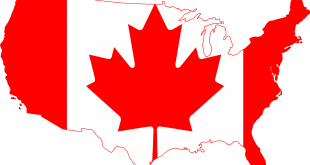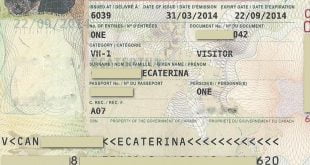With half a million foreign students coming to Canada every year, Canadian universities continue to be a top choice for international students. We have listed the top 10 universities to study in Canada in our previous article. Now we will get to know the requirements for enrollment and how to apply to Canadian universities as an international student.
Table of Contents
Notes for holders of study permits from visa-exempted countries
- It is worth mentioning that the study permit does not replace the visa. Moreover, it does not give you the right to book your trip to Canada. Besides your study permit, you will need an eTA to travel to Canada.
- If you renew your study permit, you must be aware that the eTA travel permit is not renewed automatically. Indeed, in order to be able to obtain it, you need to submit a new application. That means that you need to apply for the study permit and the eTA separately. To learn more about extending the study permit, visit the website.
In most cases, you must obtain a study permit if you are one of those who wish to complete their studies in Canada. And note also that the study permit does not replace the visa or the eTA travel permit.
What is the requirement to study in Canada?
To be able to study in Canada, you need to meet the following conditions:
- Obtaining admission by one of the Canadian universities or educational institutions. You have to apply to Canadian universities first before you apply for a study permit.
- You must provide the necessary proofs that clarify your financial situation.
As an illustration, proof that you have enough money to pay for tuition fees, living expenses for yourself and any member of your family who come with you to Canada. Also, a proof of travel fare as well as the price of the flight ticket back and forth for yourself and for any person from your family members who come with you to the state of Canada.
- You must be a law-abiding citizen, have no criminal record. Also, who does not represent any threat to the security of Canada, neither to its citizens.
Moreover, you may have to provide a certificate from the police station near your residence. In addition to a certificate of good conduct and criminal behavior.
- You must be in good health, ready to work and complete a medical examination, if necessary.
- At last, you must provide the necessary evidence to the Canadian Immigration Service to prove that you will leave Canada at the end of your authorized residence period.
Exceptions to the study permit
Short study duration
In some cases, you do not need a study permit to complete your studies in Canada, and these cases are as follows:
- If you want to study a short-term program or course
- You do not need a study permit if you plan to study a course or program for six months or less.
Representatives of foreign countries
Now, If you are a family member of an employee or employee of an organization representing another country. This country should be accredited by Global Affairs Canada (GAC), you will not need a permit to study in Canada.
However, you must contact your country’s embassy in Canada, who will then contact the GAC Protocol Office. It will help you coordinate your study matters.
Members of the foreign Army forces
If you are a member of a foreign Army force under the Visiting Forces Act, you do not need a permit to study in Canada. In addition, your family members, including minor children, can benefit from this exemption as well.
At last, you must choose the right Canadian university and start your study journey in one of them.
Now that you have learned the conditions for enrollment in Canadian universities, see also how to obtain a study visa in Canada.
How to Apply to Canadian Universities?
The different steps to follow when you apply to Canadian universities start by understanding the requirements for each school and university, along with the programs they offer. Keep in mind that students can apply to more than one program and university. This is helpful in case they don’t get admitted to their first choice.
Once you have chosen the institutions and courses you want to apply to, the next move is to meet the requirements. This includes passing the language proficiency test, whether in French or in English. Universities in Canada recommend more IELTS scores as proof of proficiency in English and DELF/DALF test for the French language proficiency.
Moreover, the application process to Canadian universities varies depending on the province. In some provinces, there is a central application service, while in others you have to go directly on the university’s website. Once this part is done, you should get an admission letter from the institution that will serve you for the study permit application. It’s advisable that you plan one year in advance at least for your Canadian study permit.
Read also our tips for international students in Canada.




 Aljawaz Your guide to study abroad
Aljawaz Your guide to study abroad
























